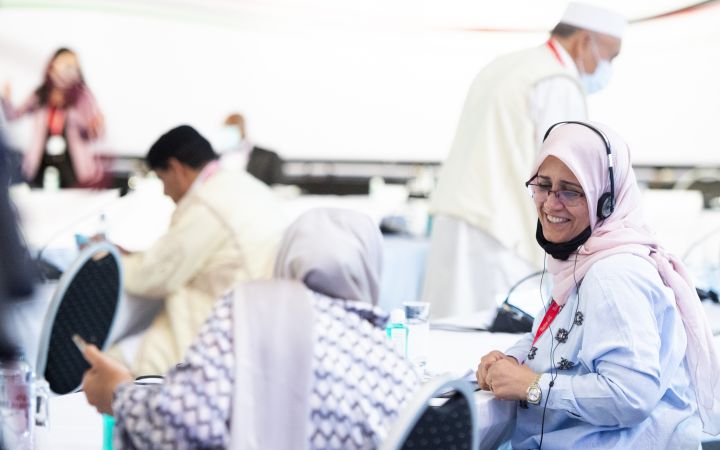3 December 2021, Geneva, Switzerland – Women’s equal participation in decision-making is crucial for an effective Covid-19 response and recovery. However, gender parity remains far off. The pandemic is adding significantly to the burden of unpaid and domestic care work that women carry out worldwide, multiplying the risk that increasing numbers of female leaders are squeezed out of the labour market. To combat this adverse trend, UNITAR substantially strengthened its efforts in the field of Gender Equality and Women’s Empowerment (GEWE) to achieve SDG5 despite the pandemic’s destructive impact. In 2021, the Multilateral Diplomacy pillar of UNITAR organised five open e-Workshops on Gender, Women’s Leadership and Mentoring in which more than 150 women worldwide participated. Thanks to the generous financial support of the Government of the Republic of India, full-time fellowships could be provided for over 120 female leaders from distressed countries.
UNITAR professes that focusing on Gender Equality and Women’s Empowerment has a substantial multiplier effect, such as providing equal opportunities in society and the labour market, promoting peace and security, and achieving sustainable development. To empower women and men is to enable them to set their own agendas, have their own skills and knowledge recognized, acquire new sets of skills, increase their self-confidence, solve problems creatively, and develop self-reliance. The innovative three-day online trainings developed by UNITAR put special emphasis on the dimension of personal growth to develop solutions that reflect women’s diverse lives, needs, and aspirations.
Strengthening the resilience of female leaders to manage uncertainty.
After successfully completing the programme, more than 150 female participants were awarded with the official UNITAR Certificate of Participation, accrediting their capacity to:
Gain insight and confidence in their own leadership roles in their strengths, challenges, and opportunities as female leaders, as well as their ability to expand their impact;
- Appreciate the importance of cultural and gender factors for successful leadership, and acquire in-depth knowledge that will help them to navigate successfully in culturally diverse settings;
- Assimilate in-depth knowledge on the impact of gender on the nature and power of diversity.
- Be able to execute the 3 C’s of Leadership in order to optimize their unique leadership style as female leaders.
The Way Forward
The current state of vulnerability, uncertainty, and ambiguity in which the world finds itself dramatically increases the urgency for training on gender-specific challenges. UNITAR’s Multilateral Diplomacy Pillar will keep its endeavours in the field of Gender Equality and Women’s Empowerment high, and ambitions to further increase the number of trainings and beneficiaries in 2022.
Contact and registration
If you are interested in participating in MDP’s upcoming e-Workshops on Gender, Women’s Leadership, and Mentoring in 2022, kindly find more information in the course brochure.
For specific requests to organize customized training activities on Gender, Women's Leadership, and Mentoring, please contact Mr. Amine Mesdoua, Fellow, Division for Multilateral Diplomacy, at Amine.MESDOUA@unitar.org directly.


